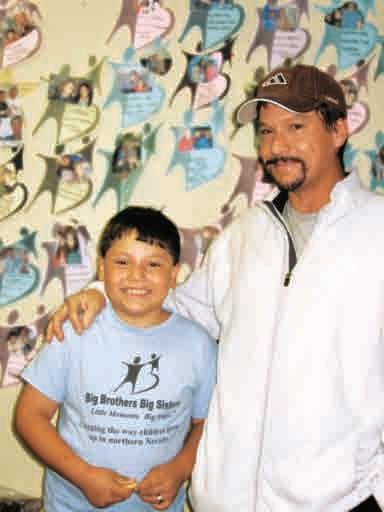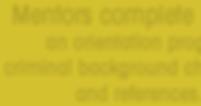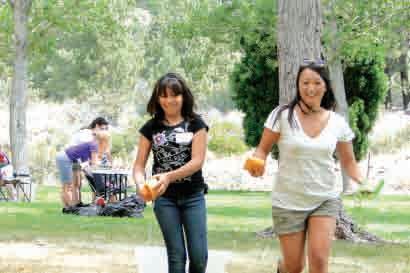
3 minute read
In Rotation
from March 22, 2012
A Big Help
One man’s experience with Big Brothers Big Sisters of Northern Nevada
Advertisement
By Bridget Meade
The time David Junell has spent as a Big Brother in the Big Brothers Big Sisters of Northern Nevada program has been as beneficial for him as it has for his counterpart, 12-year-old Matthew.
“It had been a rough couple of years for me,” Junell said. “When I first moved to Reno, the job prospects as a mechanical and structural engineering draftsman were good. Now things have dried up. Besides my parents, my relationship with Matthew is one of the main reasons I have chosen to stay here.”
Junell relocated from Newport Beach, Calif., five years ago to be closer to his parents. He signed up with Big Brothers Big Sisters after moving to Reno as a way to get involved with the community.
“I did not think I would be without a family of my own at this point in my life,” Junell said. “I was blessed with a great upbringing and wanted to give back. Big Brothers Big Sisters has not only given me this chance but has expanded my social life and opened my eyes to the opportunities in the community.”
Big Brothers Big Sisters arranged the pair’s first meeting five years ago. Prior to the meeting, the association provided Junell with tips and guidelines for being a Big Brother, and he credits the organization and its structure for making it easy from day one. BBBS frequently offers a variety of events for the two to participate in with other matches. Junell and Matthew also enjoy sports like basketball, fishing, and Junell’s passion: snowboarding.
“Matthew teaches me about fishing,” he laughed. “Reno-Tahoe is the perfect place to be, given the unique outdoor playground we are provided.”
The pair tries to see each other at least once a week and talk on the phone in between. However, it’s not just playing sports and hanging out—Junell sees to it that Matthew does his homework before they go on adventures. He also helps enforce important social cues that will benefit Matthew later in life.
“I try to instill confidence in him,” he said. “I don’t give him answers to problems but give suggestions and another perspective he might not get otherwise. That way, when he’s older, he’ll be able to face life’s various challenges.”
From the start, Junell was delighted with his role as Matthew’s Big Brother. At the beginning, Matthew was hesitant to try new things like getting off the ski lift when the two went snowboarding. He wanted to show Matthew that it’s OK to fall down when he tries something new. With practice, he assured him, he would get better. Now snowboarding is Matthew’s favorite activity.
“I even taught him how to look people in the eye when he meets them for the first time, Junell said. “He makes me proud.”
It seems likely Matthew will continue to make Junell proud. One of Junell’s goals is to show Matthew how to overcome his dyslexia and support himself as an adult. He takes Matthew with him to his work at a local construction site to demonstrate to him that there are numerous possibilities for people who work hard.
As for the future, Junell wants to make sure Matthew becomes a contributing adult so he too can give back to the community. He wants Matthew to be a Big Brother.
“Being a Big Brother has been a very healing and even nourishing part of my life,” Junell said. “There is indefinable value in having someone to care for and invest in.”
David Junell, Big Brother
To enroll as a Big BroTher or a Big sisTer
Mentors must be at least 18 year old.



After a volunteer’s initial inquiry, the potential mentor is scheduled for a brief orientation session that provides information about Big Brothers Big Sisters, its vision and mission, and what is expected from the mentoring relationship. An individual interview time is then scheduled so the volunteer may discuss his or her hobbies and interests, time availability, and preference for a child in a specific age group. A prospective mentor’s life experiences and skills are noted to make the best match possible from the very beginning.








